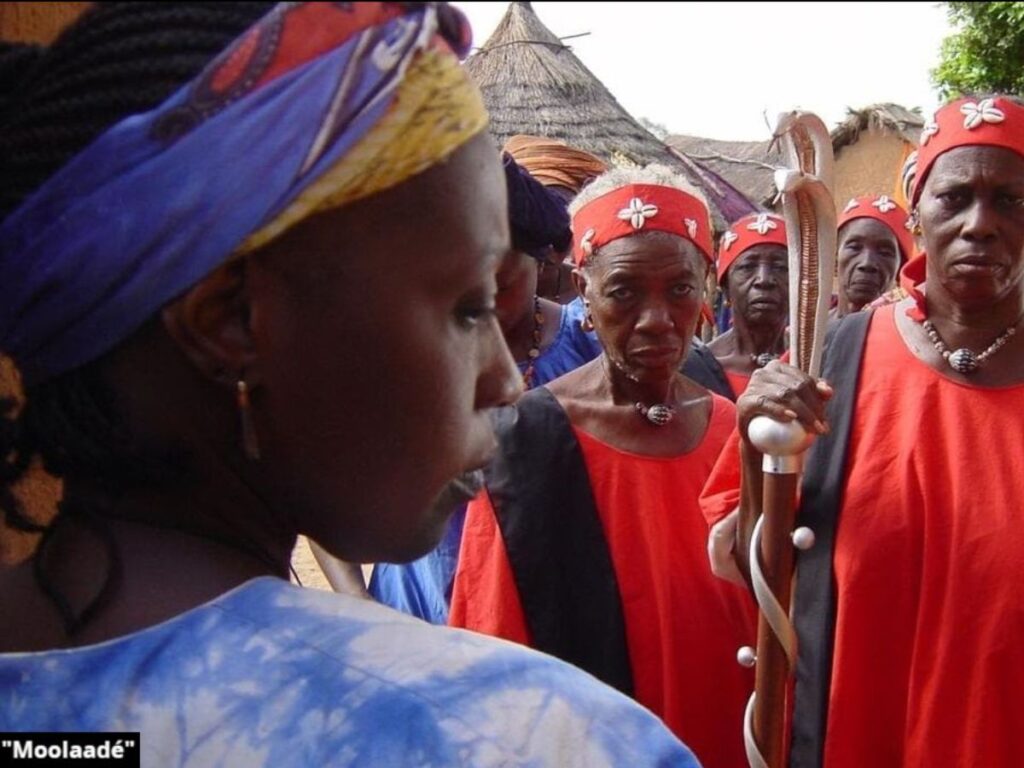Ousmane Sembène’s final film turns 20 this year.
Making its world premiere at the 2004 Cannes Film Festival, where it won the top prize in the Un Certain Regard section, “Moolaadé” celebrates a milestone anniversary a year after Sembène’s centennial, which was celebrated via various global retrospectives of his cinematic journey.
Set in a small village in Burkina Faso, “Moolaadé” tackles the controversial practice of female genital mutilation (FGM) head-on. The film centers on Collé Ardo (Fatoumata Coulibaly), a woman who provides sanctuary (moolaadé) to four young girls fleeing the “purification” ritual.

Through this act of defiance, Sembène weaves a complex story that challenges deeply ingrained cultural norms while respecting the nuances and multilayers of African traditions.
In “Moolaadé,” Sembène’s criticism of FGM is unequivocal, yet he presents this critique within a framework that respects and even celebrates other aspects of rural African life and culture.
This approach exemplifies his broader cinematic philosophy.
[Akoroko Premium subscribers received a deep dive into Sembène’s overall filmmaking approach, “Moolaadé’s” lasting impact, and its place in the broader context of African storytelling and social change: https://akoroko.com/subscribe/]